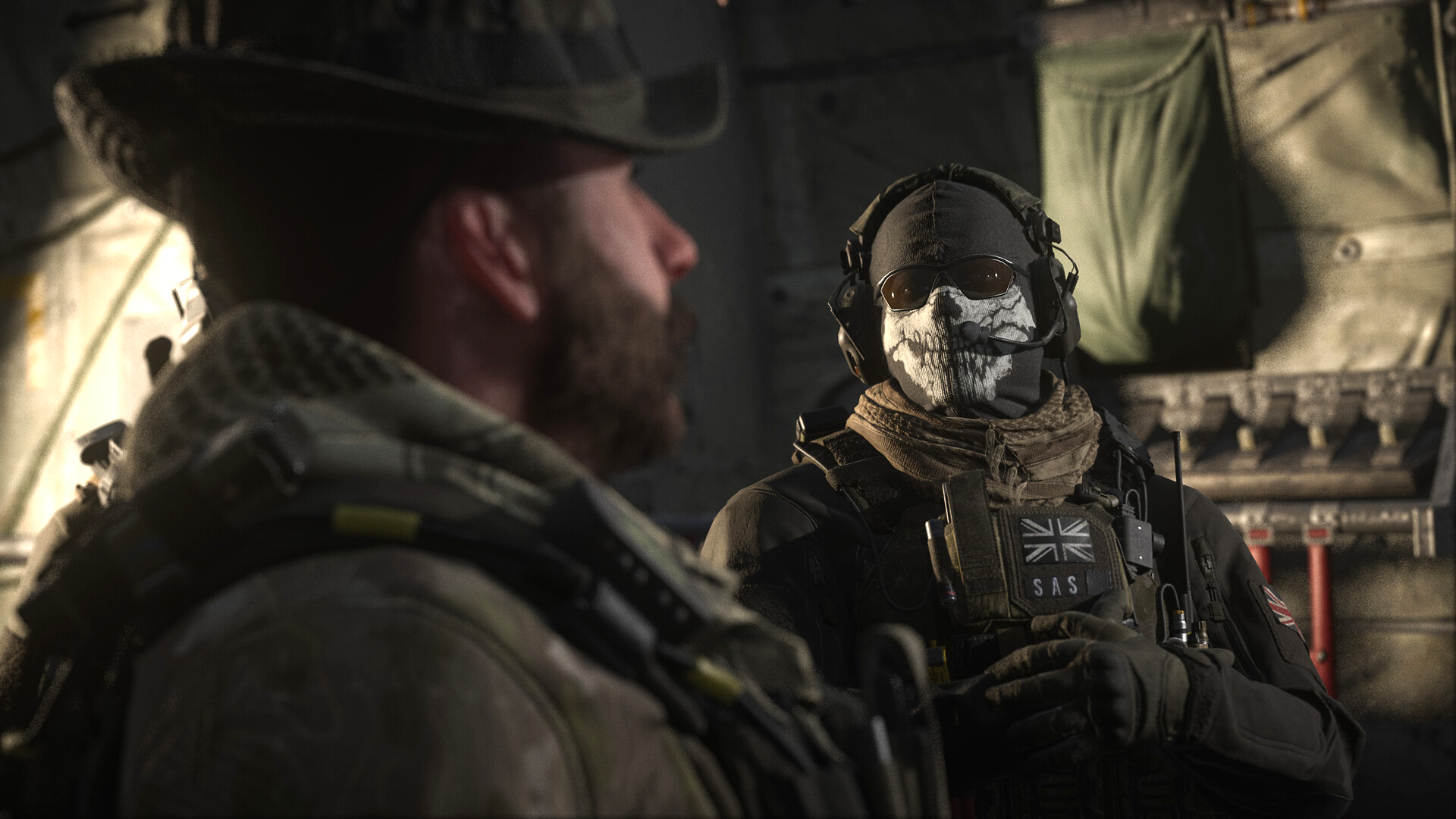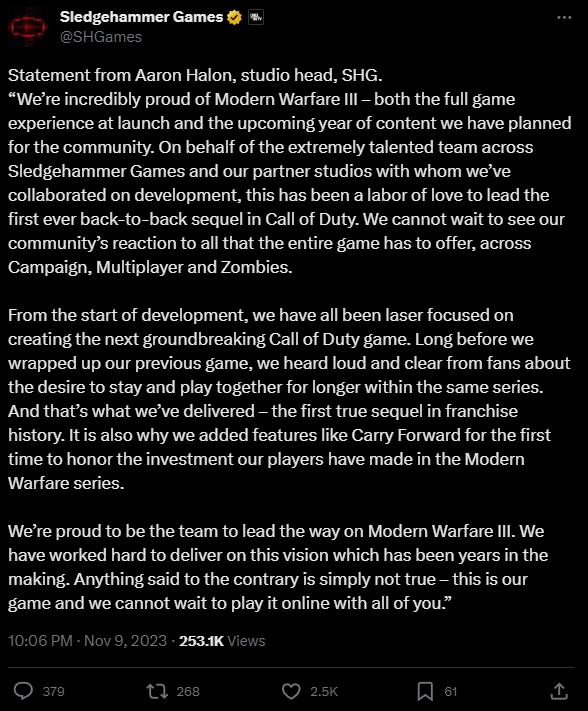
Modern Warfare 3 hasn't had the smoothest of entries. This latest entry has caught some major flak for being a 'glorified expansion' in the eyes of some fans, thanks to some confused initial messaging, carrying your guns over, and its speedy—some suggest rushed—development cycle. Now that it's out, the campaign's been panned for both its short length and an overreliance on "open combat" missions.
As Bloomberg reports, some of that same doubt came from inside the house during development, citing "more than a dozen current and former Call of Duty Developers" who reportedly felt that the plan was unclear. Some say they were directly told it was an expansion—"a smaller-scale Modern Warfare spinoff set in Mexico," according to the site—until a pivot later in development to a full-priced release.
The Bloomberg report goes on to say that: "Some staff at Sledgehammer, who had to work nights and weekends to finish the game, said they felt betrayed by the company because they were promised they wouldn’t have to go through another shortened timeline after the release of their previous game, Call of Duty: Vanguard, which was made under a similarly constrained development cycle."
Sledgehammer Games, however, wants you to know it's "worked hard to deliver on this vision which has been years in the making," as written in a statement on Twitter yesterday. I don't doubt the "worked hard" part—but most games are "years in the making". In truth, Modern Warfare 3's development cycle was uncommonly short, as the Bloomberg report states, "The reboot ate into the schedule and forced the developers to complete the new campaign in roughly 16 months—the shortest development time for a new Call of Duty game in years."
Funnily enough there's a bit of an echo here: Sledgehammer began working on the Call of Duty series with an unrealised side project, before Infinity Ward's co-founders left the studio in 2009. Sledgehammer was drafted in to co-develop the 'original' Modern Warfare 3 (2011) on a shortened 20-month timeframe. Perhaps those who do not learn from history are doomed to repeat it.

There's also this sentence: "And that’s what we’ve delivered—the first true sequel in franchise history." I assume that's speaking to your persistent armoury between Modern Warfare 2 and 3, which is neat, sure, but it's not a metric for whether a game is a sequel or not. Star Wars Jedi: Survivor doesn't stop being a sequel to Fallen Order just because I lost all my ponchos.
Rushed games exist thanks to the powers that be rather than the teams that make them: but the idea that MW3 wasn't rushed at all, that this whole thing's been planned all along, that Sledgehammer has been "laser-focused on creating the next groundbreaking Call of Duty game" from the start—well, the comments from other Sledgehammer staff tell a far more confused story.







